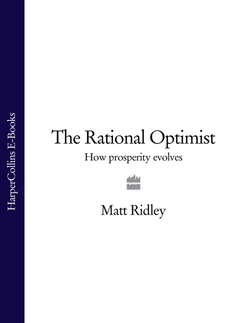Читать книгу The Rational Optimist: How Prosperity Evolves - Matt Ridley, Matt Ridley - Страница 34
The corporate monster
ОглавлениеYet for all the liberating effects of commerce, most modern commentators see a far greater threat to human freedom from the power of corporations that free markets inevitably throw up. The fashionable cultural critic sees himself or herself as David slinging stones at vast, corrupt and dehumanising Goliath-like corporations that punish, pollute and profiteer with impunity. To my knowledge, no large company has yet featured in a Hollywood movie without its boss embarking on a sinister plot to kill people (in the latest one I watched, Tilda Swinton somewhat predictably tried to kill George Clooney for exposing her company’s poisoning of people with pesticides). I hold no brief for large corporations, whose inefficiencies, complacencies and anti-competitive tendencies often drive me as crazy as the next man. Like Milton Friedman, I notice that ‘business corporations in general are not defenders of free enterprise. On the contrary, they are one of the chief sources of danger.’ They are addicted to corporate welfare, they love regulations that erect barriers to entry to their small competitors, they yearn for monopoly and they grow flabby and inefficient with age.
But I detect that the criticism is increasingly out of date, and that large corporations are ever more vulnerable to their nimbler competitors in the modern world – or would be if they were not granted special privileges by the state. Most big firms are actually becoming frail, fragile and frightened – of the press, of pressure groups, of government, of their customers. So they should be. Given how frequently they vanish – by take-over or bankruptcy – this is hardly surprising. Coca-Cola may wish its customers were ‘serfs under feudal brandlords’, in the words of one critic, but look what happened to New Coke. Shell may have tried to dump an oil-storage device in the deep sea in 1995, but a whiff of consumer boycott and it changed its mind. Exxon may have famously stood out from the consensus by funding scepticism of climate change (while Enron funded climate alarmism
